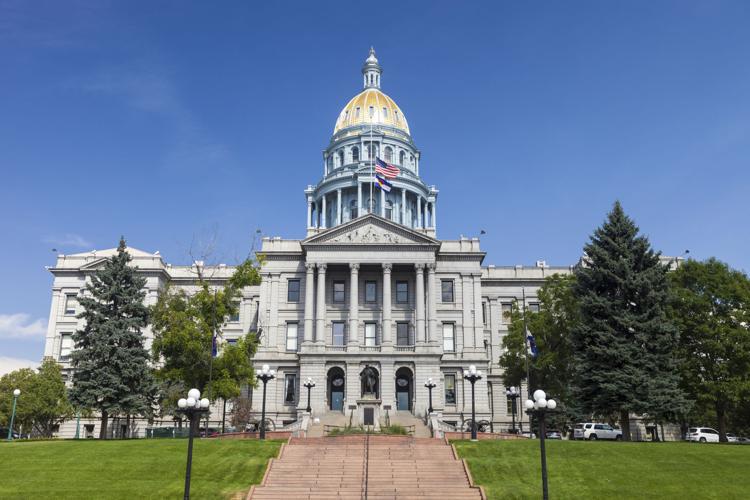|
House advances 'landmark' bill to give sex assault victims unlimited time to sue
By Michael Karlik
The Colorado House of Representatives gave initial approval on Tuesday to a bill that would eliminate the civil statute of limitations for sexual misconduct going forward, including for sexual abuse of children. “This is actually a landmark bill that you’re about to vote on,” said Rep. Matt Soper, R-Delta, one of the proposal’s sponsors. "One thing that we heard in committee is the horror stories: that it takes years for especially a child victim to be ever able to talk to authorities or to be able to talk to an attorney to raise a civil action.” Currently, the window for a survivor of childhood sex abuse to sue their perpetrator is generally six years after they turn 18. To file a lawsuit against an institution that harbored the perpetrator, that must take place within two years. House Bill 1296 would define as “sexual misconduct” a range of behaviors currently listed in law, including sexual assault, unlawful sexual contact, online sexual exploitation and sexual assault of a child. It would also get rid of the disparity between individual liability and the liability of an employer or organization. The last major attempt to lift the civil statute of limitations in Colorado occurred in 2006, after The Denver Post reported on a series of men alleging sexual abuse as boys by priests employed by the Archdiocese of Denver. Then-Archbishop Charles J. Chaput launched a broadside against the legislation, telling his followers that it was “designed to selectively and retroactively punish the Catholic community today for events that happened decades ago and in which the vast majority of Catholics played no part.” The proposal died in the final days of the session as the House and Senate were unable to agree upon a single version. “This bill [HB1296] has been a long time coming,” said former Sen. Joan Fitz-Gerald, D-Coal Creek Canyon, who led the 2006 effort. “There are a lot of victims out there. A lot of people whose childhoods were ruined, and that potentially ruined the rest of their lives. They were never the same.” She added, “I’ll keep my fingers crossed and certainly hope the Senate does the right thing.” The bill’s other sponsor, Rep. Dafna Michaelson Jenet, D-Commerce City, said that she heard no “nays” during the second reading voice vote. However, she does not know whether the Senate will take up the bill, even if it passes the whole House on third reading. “It is uncertain,” she said afterward. An e-mail to the Senate Judiciary Committee chair, Pete Lee, D-Colorado Springs, was not immediately returned. In advancing the legislation, the House approved three amendments, which added the transfer of obscene materials to children, federal sex offenses and sex trafficking to the definition of sexual misconduct. The bill as amended would also allow for lawsuits derived from sexual misconduct, such as from the parent of a child victim, to have no statute of limitations. HB 1296 was one of many bills disrupted by the legislature’s adjournment as the COVID-19 pandemic hit Colorado. In early March, the bill passed out of the House Judiciary Committee on a vote of 8-1 after several hours of testimony from sexual assault survivors. One witness characterized the bill as a “past predator protection act” because it does not provide a “lookback window” — time to file lawsuits for assaults whose statute of limitations period has expired. The sponsors acknowledged that the lookback window was initially under consideration, and states including New York and California have opened their own windows for victims in recent years. Ultimately, Michaelson Jenet and Soper excluded it, wary of the backlash the provision generated during the 2006 attempt. “While I don’t think [HB 1296] checks every single one of the boxes, we are moving forward significantly for the protection of individuals who have been sexually abused,” Michaelson Jenet told lawmakers on the House floor. The only entity to speak in opposition in committee was the Colorado Catholic Conference, which represents the Denver archdiocese and the dioceses of Colorado Springs and Pueblo. A spokesperson for the archdiocese confirmed that it remains opposed to an unlimited statute of limitations. Although the attorney general's office released a report in October documenting the extent of clergy abuse in Colorado since 1950, it did not play a role in the proponents' decision to introduce HB 1296 this year. Contact: michael.karlik@coloradopolitics.com
|
.
Any original material on these pages is copyright © BishopAccountability.org 2004. Reproduce freely with attribution.
